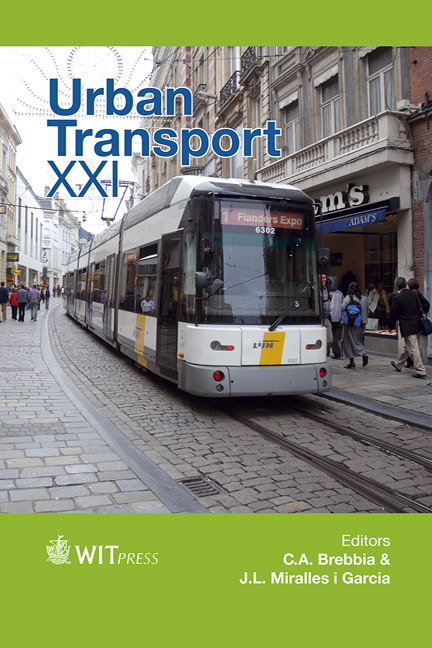The Influence Of Mitigation Policies Of The International Climate Change Regime In The Reduction Of Greenhouse Gases In The Area Of Transport
Price
Free (open access)
Transaction
Volume
146
Pages
26
Page Range
153 - 178
Published
2015
Size
397 kb
Paper DOI
10.2495/UT150131
Copyright
WIT Press
Author(s)
R. M. Borges
Abstract
This paper aims to examine the evolution of greenhouse gas (GHG) emissions in the transportation sector in megacities and their countries of origin, to discuss the effectiveness of the International Climate Change Regime (ICCR). It starts by analyzing national communications from 17 countries of the United Nations Framework Convention on Climate Change and 5 national inventories, where the 31 megacities of the study are located. One can conclude that the ICCR has influence on the adoption of policies and domestic GHG mitigation actions in 14 of the countries and they have proven effective in 3 of them – Japan, France and the United States – from 2000 to 2011. Regarding the megacities, 18 of them reported GHG mitigation policies for the transportation sector and 10 of them have goals to reduce GHG in the coming years. Concerning the distribution of the countries within the categories listed in the Kyoto Protocol, it is relevant to the Conferences of the Parties (COPs) to address the discussion on the current validity of the initial division that was made among the members of this Protocol, in view of the results that have been submitted by countries in relation to GHG emission reductions. The use of more efficient and available technologies to reduce emissions in the transportation sector could be faster implemented in these countries, in line with other policies of mitigation and actions adopted by the national and local authorities and citizens.
Keywords
international negotiations, climate change, environmental impact, effectiveness of international regimes, mitigation policies, mitigation technologies, transportation sector, megacities and their countries of origin





